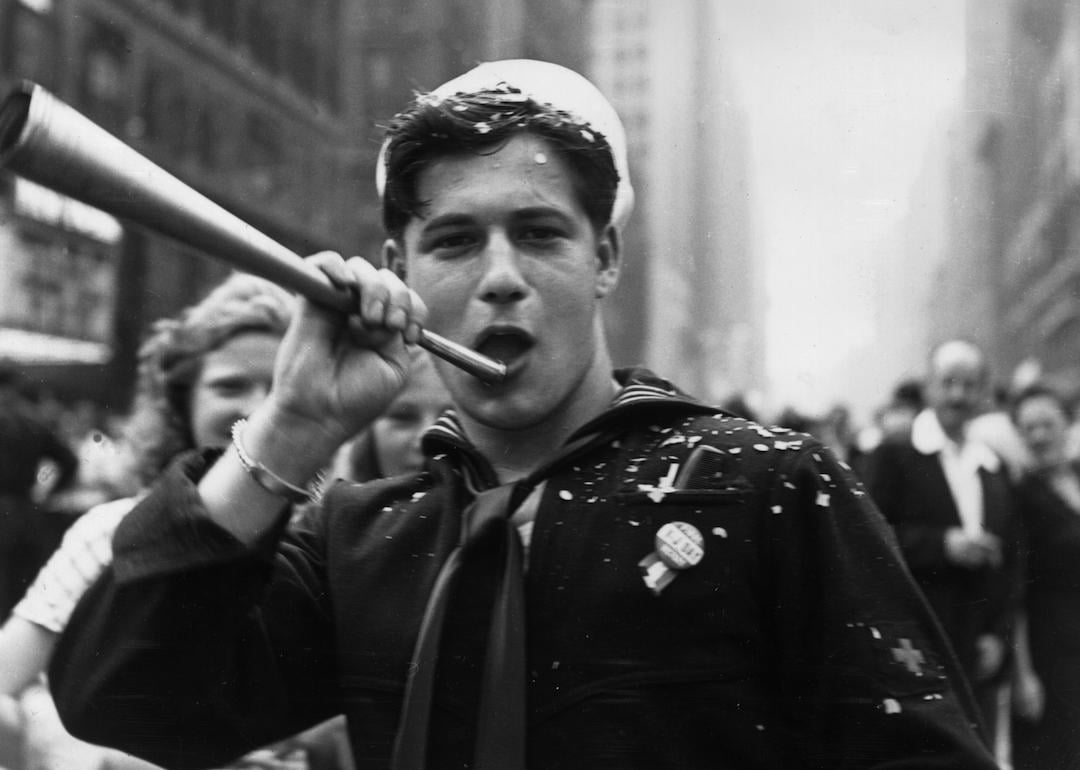For many of us, the idea of a beloved department store, a place like Macy's, holds a very special spot in our memories. It’s a place that, in a way, feels like a landmark, almost a part of the city's pulse, a spot where generations have, you know, just gone to look for things, to meet up, or simply to take in the atmosphere. This kind of store, we might say, has become truly iconic over the years, not just for the items it sells, but for the feelings and experiences it creates, and so, when we hear about its doors shutting, it really does feel like a piece of something bigger is changing.
Think about what makes something truly iconic, like, what does that even mean? Well, it tends to be something incredibly well-known or widely liked, something that, in some respects, seems to stand for particular ideas or a whole way of life. When we talk about a place being iconic, it's often because it’s been around for a long time, shaping how we see things, and it’s become instantly recognizable, maybe even admired by lots of people. It’s the sort of spot that everyone knows, and that, arguably, holds a place in our collective imagination.
So, when a business that fits this description, a place that has been a defining feature of our shopping habits and our towns for so long, starts to close up shop in various spots, it stirs up a lot of thoughts. It’s more than just a business decision; it’s a moment that makes us pause and reflect on how our communities are changing, how we shop, and what we might be losing. It’s a pretty big deal for lots of folks, actually, as it marks a shift in how we experience retail, and that, in a way, is a story worth exploring.
Table of Contents
- What Makes a Retailer Iconic?
- The Feeling of a Familiar Store Changing
- Why Are Iconic Retailer Macy's Store Closures Happening?
- The Human Connection to Iconic Retailer Macy's Store Closures
- More Than Just a Shop: The Cultural Side of Iconic Retailer Macy's Store Closures
- How Do Communities Feel About Iconic Retailer Macy's Store Closures?
- What Does This Mean for the Future of Shopping?
- Remembering the Moments from Iconic Retailer Macy's Store Closures
What Makes a Retailer Iconic?
When we talk about something being iconic, especially a store, we're really getting at its widespread influence and how much it’s recognized. It's not just about being old, though that helps; it's about being deeply woven into the fabric of daily life for so many people. An iconic spot, like a big department store, tends to be thought of as something that truly stands for its kind, you know, a prime example of what a certain type of shopping experience should be. It’s like a well-known painting, something that everyone can point to and say, "Oh, I know that." It has a certain look, a certain feel, and a reputation that just sort of precedes it.
These places become influential because they’ve often set trends, or offered things that were, perhaps, a bit ahead of their time, or just consistently provided a certain level of service or selection that made them stand out. They become revered, in a way, because they’ve been a constant presence, a place where families have gone for generations, making memories. My grandmother, for instance, used to tell stories about going to the big store downtown, and that, basically, was her idea of a special outing. It wasn't just shopping; it was an event, a bit of a tradition, and that’s what helps a place become truly unforgettable.
So, when we hear the word "iconic" tied to a retailer, it really means it’s a place that's more than just a shop. It’s a symbol, an emblem of a certain era or a particular way of doing things. It’s a spot that’s widely admired for its style, its selection, or maybe just its sheer presence in the community. It’s the kind of store that people talk about, that shows up in movies, or that serves as a meeting point for friends. It’s a pretty big deal when a business reaches this level of recognition and affection, and that, actually, is why its future feels so important to many.
- Trump Blue Suit Funeral
- Jim Croce Songs
- Angelina Jolie Children
- Is Hailey Bieber Pregnant
- Hopper Stranger Things
The Feeling of a Familiar Store Changing
There’s a unique sort of emotion that comes up when a place you’ve known for a long time, a place that feels like it’s always been there, starts to change or, like, close down. It’s not just about losing a place to buy things; it’s about a piece of your personal history, or maybe even your community’s history, shifting. For many, these iconic stores were where they bought their first suit, found a special dress for a big event, or maybe even just went to look at the holiday window displays. They were backdrops to countless personal stories, and so, the idea of them disappearing can feel a little bit sad, or, you know, like a chapter is closing.
It’s a bit like when a favorite old building in your neighborhood gets torn down; even if you didn’t go inside every day, just knowing it was there provided a sense of comfort and familiarity. These stores, especially those that have been around for generations, carry a lot of collective memories. They represent a certain time, a certain way of life, and when they start to close their doors, it can make you think about how quickly things are moving, and how much our surroundings are transforming. It’s a pretty natural human reaction to feel a bit of nostalgia, or even a sense of loss, when something so well-known and loved begins to fade from the streetscape.
Why Are Iconic Retailer Macy's Store Closures Happening?
The reasons why big, well-established stores, including places like Macy's, are seeing some of their locations shut down are, well, pretty varied, but they often come back to how people are shopping these days. For one thing, there’s been a huge shift towards buying things online. It’s just so easy, you know, to sit on your couch and have almost anything delivered right to your door. This means fewer people are making the trip to a physical store, and that, naturally, impacts how much business those stores are doing.
Then there's the whole idea of what people want from a shopping experience. It’s not just about getting what you need; it’s also about convenience, price, and sometimes, a more personalized touch. Smaller, specialized shops or even direct-to-consumer brands have, in some respects, captured a piece of the market that big department stores used to dominate. Plus, the cost of running a large physical store, with all the staff, electricity, and upkeep, is pretty substantial, so if sales aren’t keeping up, it can become a really tough situation for the business to manage.
So, it’s a combination of changing consumer habits, the rise of online shopping, and the general costs of doing business in a physical space that are, arguably, making it harder for some of these larger, traditional retailers to keep all their doors open. It’s not a simple thing, really, but it’s a reflection of a much broader change in how we, as a society, choose to get the things we want and need.
The Human Connection to Iconic Retailer Macy's Store Closures
It’s easy to look at store closures as just a business decision, a line on a financial report, but for many, it’s much more personal than that. These places, like the big, iconic department stores, were often gathering spots, where friends would meet up before a movie, or families would go for a special day out. They weren't just buildings full of stuff; they were places where connections were made, where traditions were born. Think about the excitement of going to see Santa at the big store, or picking out a prom dress with your best friend. These are pretty powerful memories, actually, and they’re tied directly to those physical spaces.
For the people who worked there, it’s a whole different story, too. These stores were their workplaces, their communities, sometimes for decades. They built relationships with their colleagues, with regular customers, and they poured their energy into making those places run. So, when a store closes, it’s not just a building that’s empty; it’s a lot of people whose daily routines, whose livelihoods, and whose sense of belonging are suddenly changed. It’s a very human impact, really, that goes far beyond just the numbers, and that, in a way, is often overlooked in the bigger conversation.
More Than Just a Shop: The Cultural Side of Iconic Retailer Macy's Store Closures
An iconic store, like a well-known department store, often plays a role in our culture that goes way beyond simply selling products. It can become a kind of landmark, a reference point in a city, or even a symbol of a certain time period. Think about how many movies or TV shows feature scenes set in these grand old places; they’re part of the visual shorthand for what a bustling city looks like, or what a holiday season feels like. They become almost characters in themselves, really, shaping our collective imagination.
They’re also places where fashion trends were often introduced to the wider public, where new ideas about home decor or beauty first took hold. They were, in some respects, curators of taste, helping to define what was popular or desirable. So, when these cultural touchstones start to disappear, it’s not just a commercial loss; it’s a shift in the cultural landscape. It’s a bit like losing a familiar piece of art or a well-loved song; it changes the overall composition of our shared experiences, and that, arguably, has a ripple effect on how we perceive our towns and cities.
How Do Communities Feel About Iconic Retailer Macy's Store Closures?
When an iconic store in a community, especially one that has been there for what feels like forever, announces it’s closing its doors, the reactions can be pretty strong and varied. For many residents, there’s a genuine sense of sadness, a feeling of losing a part of their town’s identity. These stores often served as more than just places to buy things; they were anchors in downtown areas or shopping centers, drawing people in and creating a sense of vibrancy. So, when one closes, it can leave a big gap, literally and figuratively, in the community.
Local businesses nearby might also feel the pinch, as the big store often brought in foot traffic that would then spill over into smaller shops or restaurants. There's also the concern about job losses, which can have a pretty significant impact on families and the local economy. It’s a complex situation, really, because while some might see it as an inevitable sign of the times, others will feel a deep connection to the store and what it represented, and that, actually, makes the closure a truly emotional event for many.
The community might also start thinking about what will happen to the empty building, and what kind of new businesses or developments might come in to replace it. There's often a mix of apprehension and hope for the future, as people try to imagine what their town will look like without that familiar presence. It’s a moment that forces a lot of reflection on what makes a community thrive, and what role these big, well-known stores played in that overall picture.
What Does This Mean for the Future of Shopping?
The closures of iconic stores, like some of Macy's locations, really highlight a much bigger story about where shopping is headed. It seems pretty clear that the old ways of doing things, the idea of everyone flocking to a big department store for everything, are, well, changing quite a bit. People are looking for different kinds of experiences, or maybe they just want things to be as convenient as possible, which online shopping certainly delivers. This means that stores that want to stick around, even the iconic ones, are probably going to have to adapt in some pretty significant ways.
We might see more stores focusing on unique experiences, like offering classes, or having cafes inside, or even becoming places where you can try out products before buying them online. It’s less about just having a huge amount of stuff, and more about creating a reason for people to actually come in and spend time. There’s also a growing interest in local businesses and smaller, specialized shops that can offer something a bit different, or a more personal touch. So, the future of shopping, it seems, might be a mix of very convenient online options and very engaging, unique physical spaces, and that, basically, is a pretty exciting prospect for how we might shop in the years to come.
It’s a time of real innovation, actually, where businesses are trying out all sorts of new ideas to connect with customers. The traditional model is being challenged, and while it’s sad to see some familiar places go, it also opens up opportunities for new kinds of retail experiences to emerge. It’s a bit of a reshaping of the entire retail scene, and that, arguably, will lead to some pretty interesting developments for all of us who like to shop.
Remembering the Moments from Iconic Retailer Macy's Store Closures
Even as some of these well-known stores close their doors, the memories and the impact they’ve had on people’s lives will, well, certainly stick around. For many, a store like Macy's isn’t just a building; it’s a place filled with personal history, with moments of joy, excitement, and even comfort. It’s where countless holiday traditions were made, where families gathered for annual events, or where people found that perfect gift that meant so much. These are the kinds of experiences that become part of our personal stories, and that, in a way, live on long after the physical space might be gone.
It’s a bit like remembering a favorite old movie or a classic song; even if you can’t go back to that exact moment, the feeling and the significance of it remain. The influence these iconic retailers had on fashion, on shopping habits, and on the very look of our towns is, basically, undeniable. They shaped a whole generation’s idea of what a shopping trip could be, and that, actually, is a pretty powerful legacy. So, while the physical presence of some of these stores might be fading, the memories and the cultural imprint they left behind will, very truly, continue to resonate with many.
This article has explored the idea of what makes a retailer truly iconic, looking at how such places become deeply ingrained in our lives and communities. We’ve touched on the emotional connection people feel when a familiar store, like a Macy's location, begins to close, and considered some of the broad reasons behind these changes, such as shifts in how we shop. We also looked at the human impact on employees and the wider cultural significance these stores hold, examining how communities react to these closures. Finally, we considered what these developments might mean for the future of shopping and the lasting memories these iconic places leave behind.



Detail Author:
- Name : Dewitt Metz
- Username : abdullah70
- Email : yasmine.braun@gmail.com
- Birthdate : 1972-03-04
- Address : 992 Freida Creek Lake Guido, VT 41623
- Phone : +1.832.912.7639
- Company : Murazik Inc
- Job : Watch Repairer
- Bio : Et possimus consequatur soluta omnis voluptates maiores sunt. Quidem atque et eos consequatur ad iure.
Socials
tiktok:
- url : https://tiktok.com/@hollie_xx
- username : hollie_xx
- bio : Mollitia ut sint mollitia est debitis aut facere.
- followers : 2544
- following : 1573
facebook:
- url : https://facebook.com/holliereynolds
- username : holliereynolds
- bio : Perspiciatis molestiae a ipsam laborum ex fugiat et sed.
- followers : 3110
- following : 2648